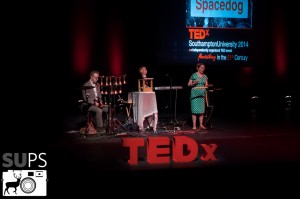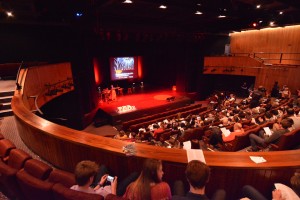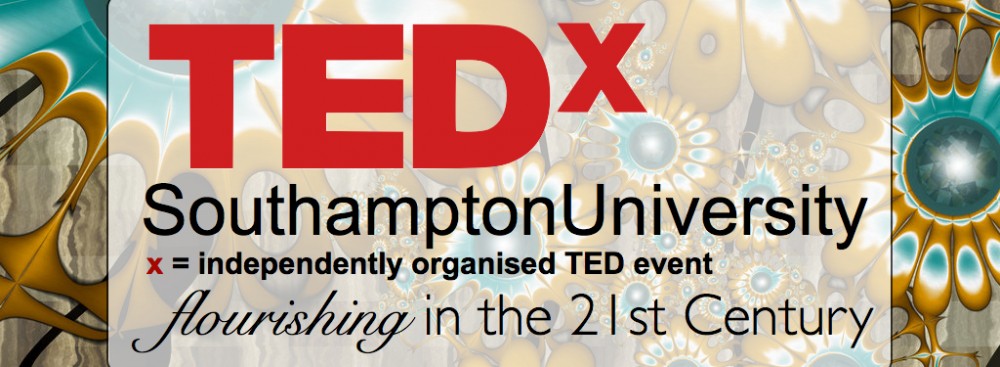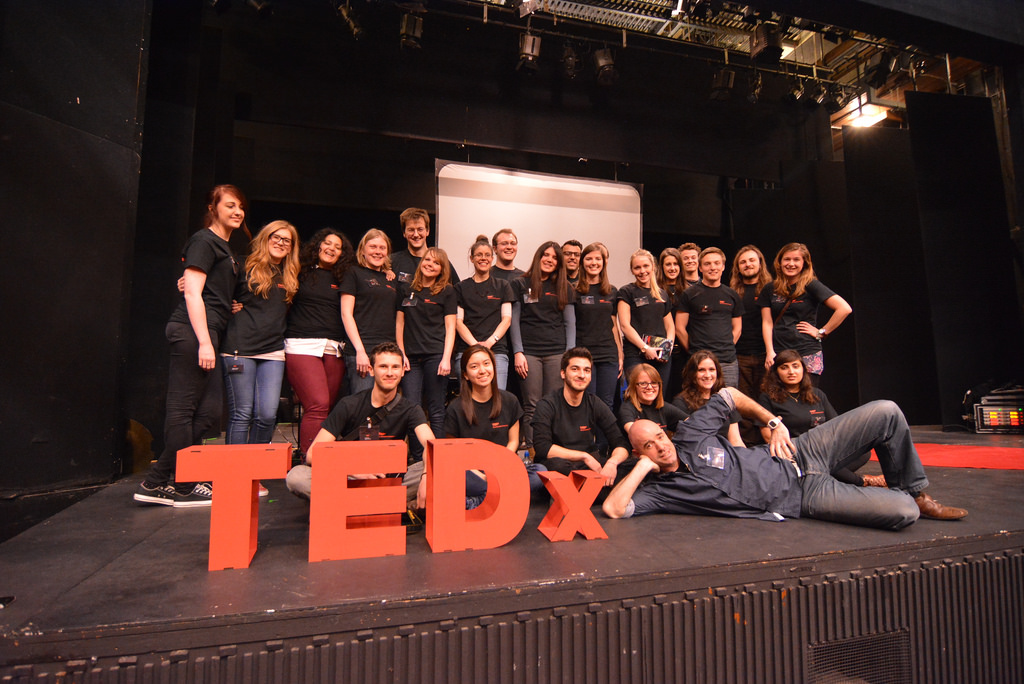Guest blog by Amy Nicholass, Student Sustainability Champion
What do atomic gardens, dancing, giant petri dishes, a ‘Parliament of Clowns’, pre-birth adaptation, theramins, the Queen’s signature, GM trees, radio waves and Gorilla dung have in common?
The answer?
They were all part of TEDx at the University of Southampton this Sunday at the Nuffield theatre. TED stands for Technology Entertainment and Design, and through TED.com it promotes ‘ideas worth spreading’ via short talks. TEDx Southampton University (in its second year) is organised mainly by students and was hosted by James Dyke, lecturer at the University, with the optimistic theme of ‘Flourishing in the 21st Century’.
There were twelve performances which you’d think would make for an intense Sunday afternoon, but being only around 15 minutes each and with an hour break for cake and inspiring chat, it made for a wonderful delve into the key issues we are facing.

The quirky Spacedog performances were a personal highlight. The eerie electronic sound of a theramin accompanied by hand bells and a talking Ventriloquist dummy head was captivating and hauntingly beautiful. It was fantastic to have such a mix of art and scientific discovery on the same bill. Ella Hickson and Ben Duke took us on their journey of collaboration with doctors, researchers and patients to create a short theatre performance about the human experience of maintaining dignity in the face of cancer. After eliciting many laughs, the palpable stillness and silence as the audience was captivated by the power of dance to express what cannot be said with statistics or words was incredibly moving.
Dr Helen Roberts allayed some of my old age fears by saying it’s never too late to live well now (and perhaps take up Ballroom dancing) so we can enjoy the extra decades we will have in the 21st Century. Jane Falkingham gave us some demography ‘pub facts’– did you know that 50% of those born in the UK in 2007 will live to be 103? That’s why the Queen has stopped signing the telegrams!
Sarah Angliss shared her passion for the national archives, warned of the short term nature of techno fixes, and advised that we should take a leaf out of the book of the Electrical Association of Women and get more scientists and engineers in parliament.
 Eye openers for me were how the rules for open access radio wave frequencies led to so much innovation (nearly every mobile device we use), and how global knowledge sharing itself can optimise our pre-adaptation to changing environmental conditions before we are even born. Documentary film maker Kate Maple’s journey from feeling helpless about the world’s problems to inspiring others to embrace the change, and Ian Redmond’s reminder of our interconnectedness with the Gorillas and Elephants who garden the rainforests were very humbling. They brought home how it’s our connections with others that will ultimately allow us to flourish.
Eye openers for me were how the rules for open access radio wave frequencies led to so much innovation (nearly every mobile device we use), and how global knowledge sharing itself can optimise our pre-adaptation to changing environmental conditions before we are even born. Documentary film maker Kate Maple’s journey from feeling helpless about the world’s problems to inspiring others to embrace the change, and Ian Redmond’s reminder of our interconnectedness with the Gorillas and Elephants who garden the rainforests were very humbling. They brought home how it’s our connections with others that will ultimately allow us to flourish.
For more information on the speakers and to see videos of the talks check out www.tedxsouthamptonuniversity.com

